#Samurai I: Musashi Miyamoto 1954
Explore tagged Tumblr posts
Text



Toshiro Mifune in "Miyamoto Musashi" (1954)
#Toshiro Mifune#Mifune Toshiro#Miyamoto Musashi#Miyamoto Musashi 1954#Samurai I: Musashi Miyamoto#Samurai I: Musashi Miyamoto 1954#Hiroshi Inagaki#1950s#50s#cinematography#cinema#samurai movie#vintage actor#actor#film#movie#moviegifs#cinemapix#filmgifs#filmedit#thgifs
39 notes
·
View notes
Text



#samurai trilogy#samurai: musashi miyamoto#1954#samurai movie#japan#50s movies#1950s film#samurai I#samurai I: musashi miyamoto#hiroshi inagaki#宮本武蔵#himeji castle#castle#architecture
9 notes
·
View notes
Text




Samurai I: Musashi Miyamoto, Hiroshi Inagaki, 1954.
4 notes
·
View notes
Text




三船敏郎 // MIFUNE TOSHIRO 宮本武蔵 // Samurai I: Musashi Miyamoto (1954)
#mifune monday ✨💋#mifune toshiro#toshiro mifune#samurai i#samurai i: musashi miyamoto#filmedit#filmgifs#classicfilmsource#classicfilmblr#dailyworldcinema#japanese cinema#miyamoto musashi#三船敏郎#宮本武蔵#時代劇#mycinema#mystuff
298 notes
·
View notes
Text










Samurai I: Musashi Miyamoto (1954) | dir. Hiroshi Inagaki
#samurai i#musashi miyamoto#hiroshi inagaki#rentaro mikuni#kaoru yachigusa#toshiro mifune#films#movies#cinematography#scenery#screencaps
69 notes
·
View notes
Note
(this is spacekrakens lmao) dude idk anything about like 1950s Japanese cinema, do you have any recommendations? looking for stuff to toss on the watchlist now that I'm a bit burned out on horror (unless you have some horror recs)
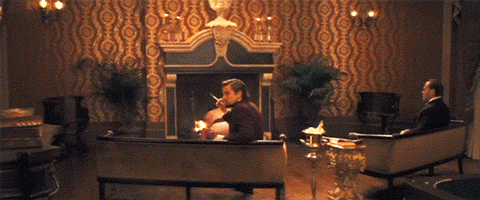
Hey! If you’re curious about Japanese cinema (particularly 1950s), there’s a lot of avenues to explore! Musicals, crime, horror, historical—it all depends on what mood you’re in. (Putting this under a read more because I'm DEFINITELY going to be long posting about this!!!) Hope this is useful to you lol.
(Also noting if anybody wants to add to this list with their own recommendations feel free!!)
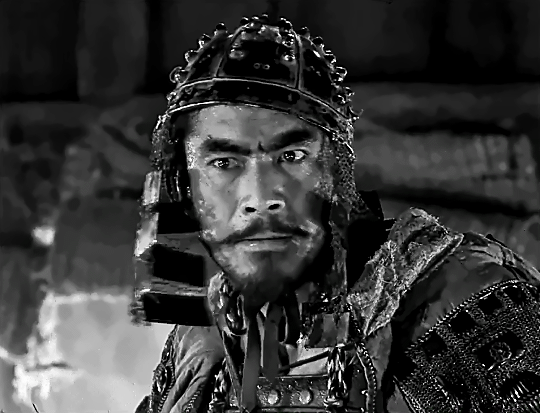
With old school Japanese cinema, I’ll always recommend Akira Kurosawa (obviously). He’s made some of the best Japanese movies (and arguably, the best movies of all time imo) and I feel like his work is a good gateway. It’s readily available on physical media/streaming too.
Specifically ‘50s stuff; Hidden Fortress (1958) is a good adventure flick whose structure was swiped for Star Wars, Throne of Blood (1957) is Japanese Macbeth if you like Shakespeare, and if you don’t mind a longer movie Seven Samurai (1954) includes Toshiro Mifune acting like this;
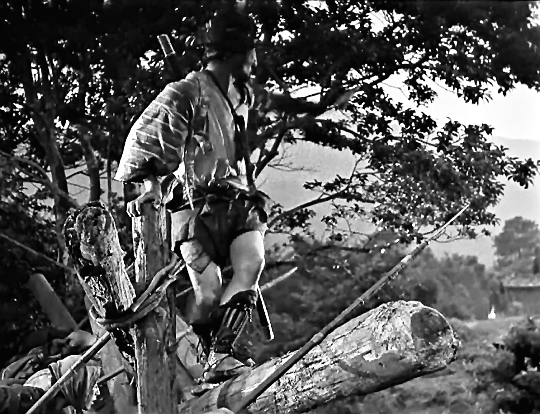
Gotta admit, though—my personal favorites from Kurosawa don’t come from the 1950s; Drunken Angel (1948) and Yojimbo (1961). One has a pathetic gangster as the main lead, the other is just a solid, breezy proto-action film (also has my beloved Unosuke but that's besides the point)
Some personal favorites of mine from the 1950s:
Life of a Horse Trader (1951) is a bittersweet story about a man trying to be a good single father to his son in the backdrop of Hokkaido. He tends not to be great at it. Stars Toshiro Mifune, the most famous face of Japanese cinema and for good reason!
Conflagration/Enjo (1958) is a single Buddhist acolyte’s fall into quiet insanity. Raizo Ichikawa is another amazing actor who I love! Also includes Tatsuya Nakadai who is the GOAT (in my heart).
Godzilla (1954) is AMAZING! If you liked Gozilla Minus One, it took a lot of familiar cues from this movie. It also technically counts as horror, depending on your definition.
Japanese horror from the 1950s:
Ugetsu (1951) (Not one I’ve seen personally, but it’s on Criterion)
The Beast Shall Die (1958) (American Psycho, but in Showa Japan. Tatsuya Nakadai is terrifying in this and absolutely despicable—stylish movie tho!)
Ghost of Yotsuya (1959) (Old-school Japanese ghost story. Honestly, there are so many different versions of this story on film that you can pick which version to watch and go from there—I’m partial to the 1965 version myself, because of the rubber rats and Tatsuya Nakadai playing a crazy person).
The Lady Vampire (1959) is the OG western-style vampire movie from Japan. Plays around with the mythos a lot, but hey our Dracula looks like this;

Misc movies that I think are neat or good gateway movies:
The Samurai Trilogy by Hiroshi Inagaki, which stars Toshiro Mifune as Miyamoto Musashi. Found that people otherwise uninterested in Japanese cinema really enjoyed this!
You Can Succeed, Too (1964) is one of my favorites from the ‘60s, also directed by Eizō Sugawa. A fun satire on the corporate world that's super colorful with catchy songs.
The Sword of Doom (1966) is also another favorite of mine, starring my beloved Tatsuya Nakadai as another bastard man (seriously though Ryunosuke is FASCINATING to me--). Fun gore effects and action scenes!
Kwaidan (1964) is an anthology of Japanese folk tales, labeled a horror film but in that kinda sorta old-school way. Beautifully shot by my favorite Japanese director Masaki Kobayashi (who, if you like this you should seriously check out his other work!)
#thanks for the ask!#akira kurosawa#tatsuya nakadai#toshiro mifune#raizo ichikawa#japan#film#godzilla#hidden fortress#seven samurai#drunken angel#yojimbo#enjo#sword of doom#kwaidan#you can succeed too#samurai trilogy#the lady vampire#ghost of yotsuya#ugetsu#life of a horse trader#throne of blood#ask
89 notes
·
View notes
Note
Hiii sorry to bother you but I have three questions! Where is the gif in your header from? Also is that Clint Eastwood in your pfp? Also also - I noticed you are a Toshiro Mifune fan, what movie with him would you recommend?
HII! It’s no bother!!
The gif in my header is from Drunken Angel (1947) Starring TOSHIRO MIFUNE!!!
And yes! That’s Clint Eastwood in my pfp, as rowdy Yates from rawhide!
As for a toshiro mifune movie I’d recommend?
If you want something lighthearted? Tokyo Sweetheart
If you want a drama? My favorite film Drunken Angel (1947)
If you want something more action like almost? Snow Trail (1947)
If you want samurai? Samurai 1 (1954) by Hiroshi Inagaki also known as Musashi Miyamoto
And if you want a romantic drama? Wedding Ring (1950)
Thanks for the ask!! I love when people ask me stuff!
10 notes
·
View notes
Text
forgive me father, for i decided to rate mifune roles based on their husband-material qualities:
Eijima (from Snow Trail, 1947): would spit on the floor, gross, 4/10
Matsunaga (from Drunken Angel, 1948): homosexual??, 7/10
dr. Kyoji Fujisaki (from The Quiet Duel, 1949): don't care about his remorse and drama, get better soon, 7/10
detective Murakami (from Stray Dog, 1949): i love him, 9/10
Nagasawa (from Conduct Report on Professor Ishinaka, 1950): listen if he can tolerate that obnoxious laugh he's a saint, 10/10
Ichirō Aoye (from Scandal, 1950): 8/10
dr. Takeshi Ema (from Wedding Ring, 1950): 10/10
Tajōmaru (from Rashomon, 1950): 4/10
Denkichi Akama (from The Idiot, 1951): his first marriage didn't end well, 3/10
Miyamoto Musashi (from Sasaki Kojiro, 1951): too little material to rate, ?/10
Yonetaro Katayama (from Life of a Horse Trader, 1951): bad husband, 3.5/10
Chiyokichi (from Foghorn, 1952): don't know where the rating comes from but 8.5/10
Katsunosuke (from Life of Oharu, 1952): would literally die for you (if you are Oharu), 11/10
Kurokawa (from Tokyo Sweetheart, 1952): malewife, 10/10
Hayakawa (from The Last Embrace, 1953): cursed, 8/10
Ippei Itachi (from Sunflower Girl, 1953): has the potential to become malewife too, 10/10
Kikuchiyo (from Seven Samurai, 1954): compelling, 7/10
Musashi Miyamoto (from the Samurai trilogy, 1954-1955-1956): married first to swordmanship plus a lot of drama, honestly too much work for a marriage, 5/10
Mitsuo Yano (from No Time for Tears, 1955): haven't seen this one but love the vibes, 6/10
Shuntarō Ōhira (from Settlement of Love, 1956): get better friends first, 9/10
Kenkichi (from A Wife's Heart, 1956): 8.5/10
Washizu (from Throne of Blood, 1957): simp, will kill for you, 9.5/10
Sutekichi (from Lower Depths, 1957): 4.5/10
Matsugorō Tomishima (from The Rickshaw Man, 1958): PLEASE 8.5/10
general Rokurota Makabe (from The Hidden Fortress, 1958): would let you die for his clan but let's be honest those arms are worth the risk, 4.5/10
Heihachiro Komaki (from Samurai Saga, 1959): virtually 9/10
Nishi (from The Bad Sleep Well, 1960): we know how his first marriage went, 7.5/10
Sanjuro (from Yojimbo, 1961 and Sanjuro 1962): wouldn't settle down, probably bad husband (but i'd forgive him), 6/10
Gondo (from High and Low, 1963): boring job, 6/10
Akahige (from Red Beard, 1965), Shimada (from Sword of Doom, 1966), Jubei (from Red Sun, 1971): i think they would be married first to their job, 5/10
Isaburo Sasahara (from Samurai Rebellion, 1967): marriage to cover his old man gay affair with the in-movie Nakadai, ?/10
forgot many and haven't watched more but assume not going lower than 3/10 in the worst case scenario
#there's a twin list of mifune roles rated by how fuckables they are but i am not posting it because i like to think there's some dignity#left in me (although i ruined it all by admitting it here in the tags)#whateverrr#forgive me father#forgive me toshiro mifune#director's commentary
6 notes
·
View notes
Text

June 12th, 2023
Tonight I decided to get back into my project by attempting to make it through some of the Samurai movies in the Criterion Collection. I decided to start with the Samurai trilogy and obviously Samurai I: Musashi Miyamoto (1954) to maybe build up to some of the more infamous or easily recognizable ones on the list. I have to say I got really invested and can’t wait for part two tomorrow.
I’m glad I found so many of these movies because after growing up with things like Star Wars and The Last Airbender that were heavily influenced by the Samurai genre I feel like it was high time I checked the actual films out for myself.
0 notes
Photo

7 notes
·
View notes
Text


Toshiro Mifune in “Miyamoto Musashi” (1954)
#Toshiro Mifune#Mifune Toshiro#Miyamoto Musashi#Miyamoto Musashi 1954#Samurai I: Musashi Miyamoto#Samurai I: Musashi Miyamoto 1954#Hiroshi Inagaki#1950s#50s#cinematography#cinema#samurai movie#vintage actor#actor#film#movie#moviegifs#cinemapix#filmgifs#filmedit#thgifs#might be my fav gif set i ever made hngg
20 notes
·
View notes
Text

#samurai trilogy#samurai I: musashi miyamoto#samurai: musashi miyamoto#宮本武蔵#1954#samurai movie#japan#50s movies#1950s film#samurai I#hiroshi inagaki#landscape#sanshirojima#islands#seaside#coast#islet
6 notes
·
View notes
Text

#cinematography#movies#cineshots#beautiful shots#Samurai I: Musashi Miyamoto [1954] Director: Hiroshi Inagaki
3 notes
·
View notes
Text







三船敏郎 // MIFUNE TOSHIRO 宮本武蔵 // Samurai I: Musashi Miyamoto (1954)
#mifune toshiro#toshiro mifune#samurai i#samurai i: musashi miyamoto#filmedit#filmgifs#classicfilmsource#classicfilmblr#dailyworldcinema#japanese cinema#miyamoto musashi#三船敏郎#宮本武蔵#時代劇#mycinema#mystuff#mifune monday ✨💋
234 notes
·
View notes
Text

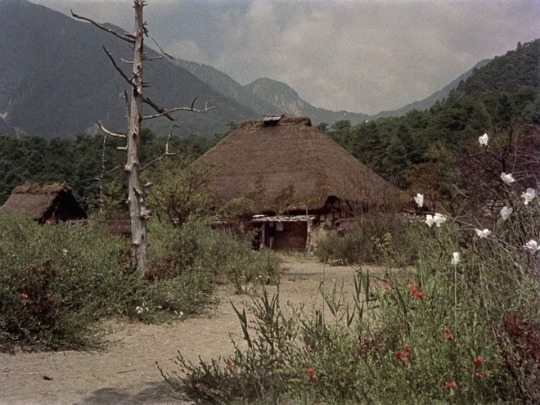

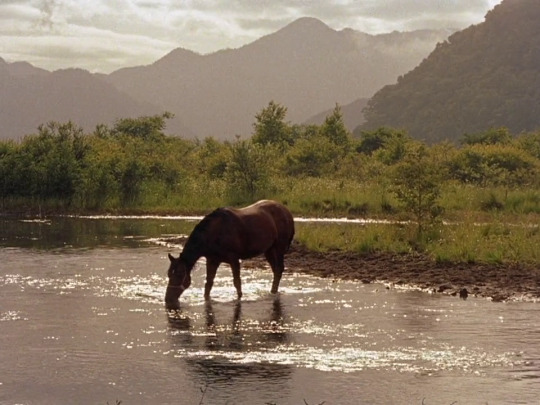

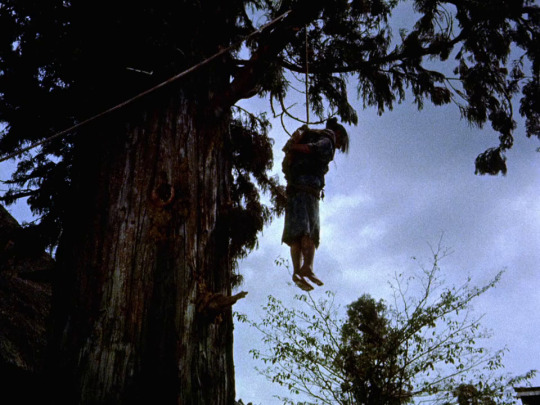


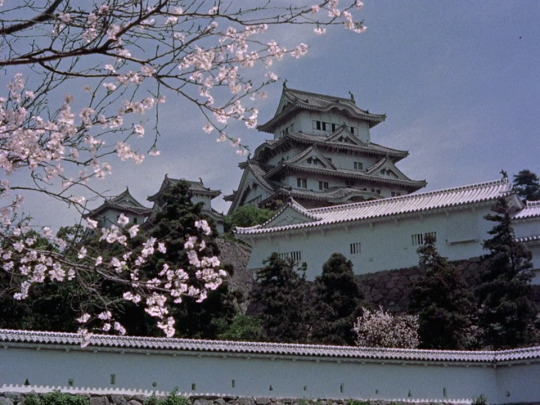

Samurai I: Musashi Miyamoto (1954) | dir. Hiroshi Inagaki
#samurai i#musashi miyamoto#hiroshi inagaki#rentaro mikuni#kaoru yachigusa#toshiro mifune#films#movies#cinematography#scenery#screencaps
76 notes
·
View notes
Text
Toshiro Mifune stars in 'The Samurai Trilogy' on HBO Max and Criterion Channel
Toshiro Mifune stars in ‘The Samurai Trilogy’ on HBO Max and Criterion Channel
The Samurai Trilogy (Japan, 1954-1956), Hiroshi Inagake’s three-film adaptation of Eiji Yoshikawa’s epic novel, debuted the same year as Kurosawa’s The Seven Samurai and was one of the most popular cinematic exports of its era. Musashi Miyamoto was a real life swordsman elevated to the stature of almost mythic historical hero and this series embraces the mythic dimensions with a removed, distant…

View On WordPress
#1954#1955#1956#Blu-ray#Criterion Channel#Criterion Collection#DVD#HBO Max#Hiroshi Inagake#Japan#Kaoru Yachigusa#Koji Tsuruta#Samurai I: Musashi Miyamoto#Samurai II: Duel at Ichijoji Temple#Samurai III: Duel at Ganryu Island#Toshiro Mifune#VOD
7 notes
·
View notes